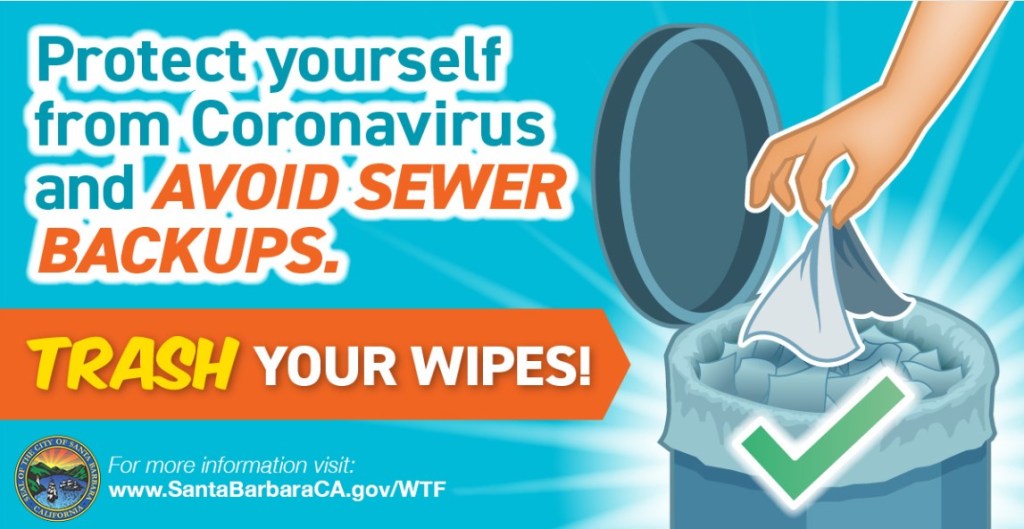In a press release on Monday morning, the City of Santa Barbara urged community members to throw wipes into the trash rather than flushing them down the toilet. Flushing such items can cause costly damage to public and private plumbing systems and have negative environmental consequences.
“Even wipes that are labeled as ‘flushable’ and ‘septic-safe’ do not degrade in the sewer system, and, when mixed with fats, oils and grease, can cause blockage in pipes that may result in sewer spills,” the press release explained. This is especially troubling for houses with older pipelines that have buildups of grease, roots, and other obstructions.
In one instance, a blockage at a multi-unit housing property on the Mesa resulted in a walking path closure and raw wastewater runoff. In situations like these, wastewater runs into nearby bodies of water and negatively impacts plant and animal species. Clearing blockages like this can cost in the thousands of dollars. The average recovery charge added to a property owner’s utility bill is $540, the press release stated, not including the cost of cleanup or the cost to repair damaged private plumbing.
To make matters worse, city wastewater workers have seen a substantial increase in the number of wipes and paper towels since the coronavirus outbreak reached Santa Barbara in early March. According to the city’s website, the following items should never be flushed: disinfecting wipes, paper towels, cotton swabs, “disposable” mop heads, paper towels, and any other consumer item that is not toilet paper.
The press release concluded with a helpful axiom: “Please remember, wipes don’t belong in pipes.”

